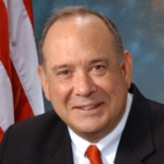Andorra
Geography and History of the Principality of Andorra (by Josep Quereda Vàzquez, Andorramania)
 Fonsdeviela, Narcis Casal De
Fonsdeviela, Narcis Casal De
Attorney Narcís Casal de Fonsdeviela has served as ambassador of the tiny European nation of Andorra to the United States since November 2, 2009. He had already been serving as Andorra’s representative to the United Nations since September of that year. He added Canada to his portfolio in May 2010.
- Table of Contents
- News
- Overview
- Basic Information
- History
- Newspapers
- History of U.S. Relations with Andorra
- Current U.S. Relations with Andorra
- Where Does the Money Flow
- Controversies
- Human Rights
- Debate
- Past Ambassadors
- Ambassador to the U.S.
- Embassy Web Site in the U.S.
- Comments
- Leave a comment
U.S. Ambassador to Andorra

A key fundraiser for President Barack Obama’s, Alan D. Solomont has been a major player in Democratic Party politics since the 1980s, while amassing a fortune in the nursing home industry and contributing millions to a variety of philanthropic causes, including many Jewish organizations. He was confirmed by the Senate as Ambassador to Spain on December 24, 2009.
Previous U.S. Ambassador to Andorra

Geography and History of the Principality of Andorra (by Josep Quereda Vàzquez, Andorramania)
 Fonsdeviela, Narcis Casal De
Fonsdeviela, Narcis Casal De
Attorney Narcís Casal de Fonsdeviela has served as ambassador of the tiny European nation of Andorra to the United States since November 2, 2009. He had already been serving as Andorra’s representative to the United Nations since September of that year. He added Canada to his portfolio in May 2010.
Comments
U.S. Ambassador to Andorra

A key fundraiser for President Barack Obama’s, Alan D. Solomont has been a major player in Democratic Party politics since the 1980s, while amassing a fortune in the nursing home industry and contributing millions to a variety of philanthropic causes, including many Jewish organizations. He was confirmed by the Senate as Ambassador to Spain on December 24, 2009.
Previous U.S. Ambassador to Andorra








Comments